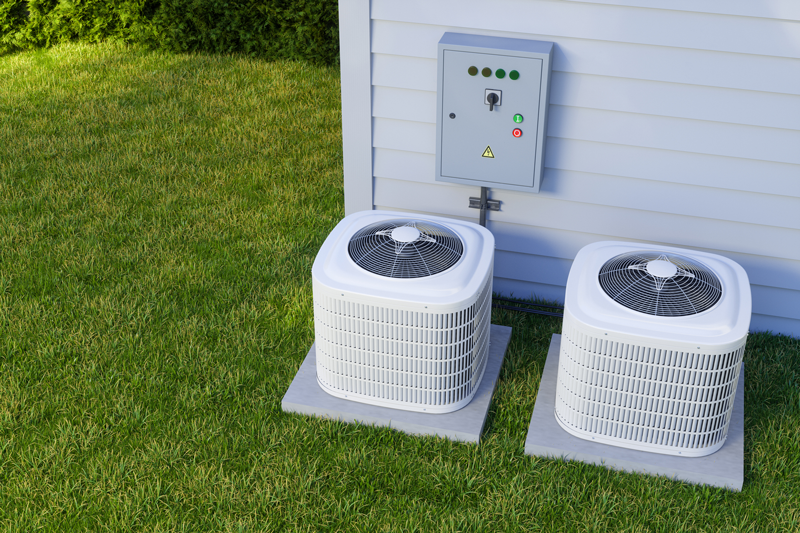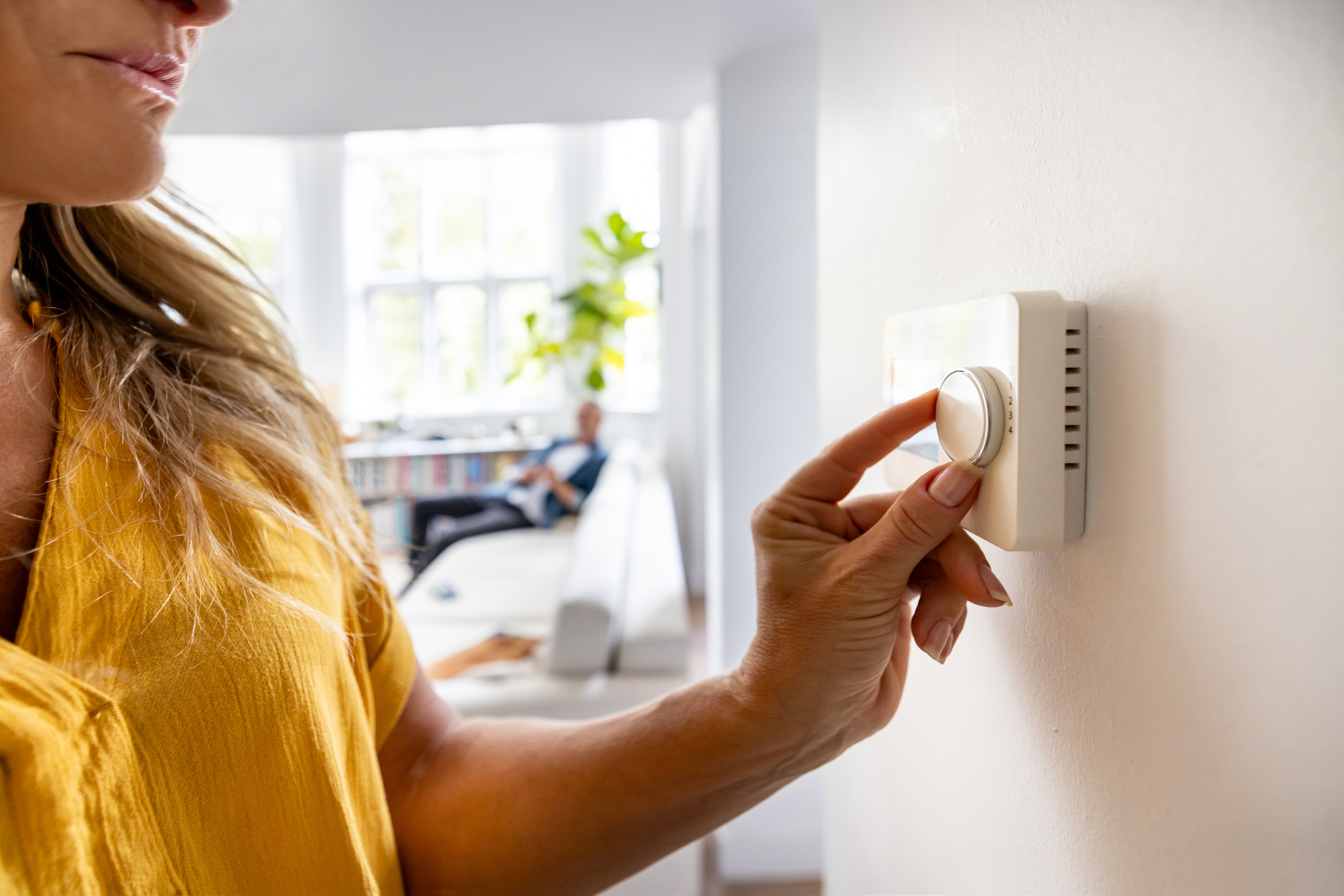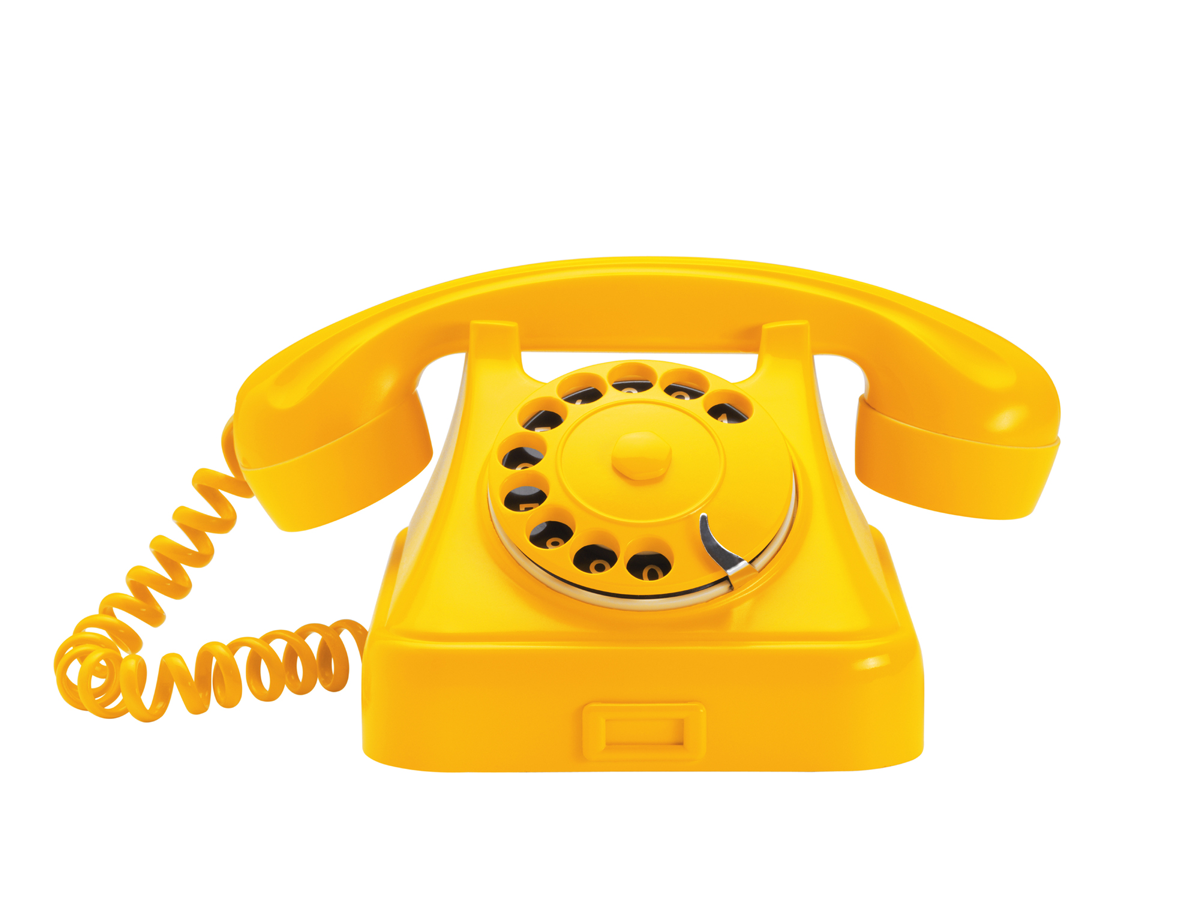HVAC Repair: DIY Maintenance Tips (And When to Call the Pros)
Here in Chattanooga and North Georgia, heating and air conditioning are a top priority for many homeowners. With summer temperatures climbing past the 90s and winter temperatures dropping to the 30s, many homeowners heavily rely on HVAC systems to keep their homes safe and comfortable. Heating and air conditioning systems often contribute to more than half of a household’s energy consumption, and replacing the system can be very costly in the event of an emergency.
Ensuring that your HVAC system is running properly is a great way to avoid high energy bills, extend the life of your HVAC, and keep your home comfortable year-round. Read on for ten important maintenance tips that every Chattanooga area homeowner should know.
Change Filters Regularly

HVAC filters ensure that the air circulating through your home and your HVAC unit is clean by trapping pollutants like dust, pollen, animal fur, mold, and more. However, when they become clogged with pollutants it can be difficult for air to pass through them, which means your HVAC system will have to use more energy than necessary to circulate the air. Additionally, if the filter is not performing properly, excessive dirt and dust can begin to harm the components of your HVAC.
The rule of thumb is to change these filters every four months, but if you have a pet or suffer from allergies, you may want to change them on a monthly basis. With the pollen counts here in Chattanooga and North Georgia, it may be necessary for some homeowners to change these filters every 20 days during spring and summer.
Inspect Your HVAC System
It is important to regularly check on your HVAC system so you can stay on top of potential issues before they get out of hand. Taking a quick look at the unit on a monthly basis is the best way to ensure that your HVAC isn’t out of sight and out of mind. Here’s a quick checklist for a monthly visual inspection:
- Make sure the condensate system is draining properly
- Ensure the flue system is fully attached and intact
- Check that all registers and returns are unblocked
- Make sure the outdoor unit is upright and level
- Check all registers for mold
Keep the Indoor HVAC Unit Free of Clutter
Proper airflow is critical for an efficient heating and cooling system, so it is best to avoid storing items around the indoor unit. Clutter can block airflow and accumulate dust, which can then make its way into your air. Re-organizing storage and ensuring that the area is clean and clear is a great way to avoid trouble.
Keep the Outside HVAC Unit Clean and Clear
Whether you’re located on Lookout Mountain or in the suburbs of Chattanooga, it’s likely that your outdoor HVAC unit will become a landing pad for leaves and other debris - particularly in the fall. It’s important to remove leaves, twigs, grass clippings, and any other debris from the outdoor unit on a regular basis and to hose it down if dirt begins to build up.
Program Your Thermostat

Temperature needs can fluctuate throughout the day and overnight. Having a programmable thermostat allows you to set different temperatures for times when you’re out of the house. Allowing your home to be slightly warmer during the summer days and slightly cooler in the winter allows your system to run less often, saving money on power bills and extending the life of your unit.
Replace Thermostat Batteries
If your thermostat is not hardwired into your home’s electrical system, you may need to get in the habit of checking its battery. In general, replacing the batteries in your thermostat once a year is a good way to prevent trouble with the system.
Maintain Carbon Monoxide Detector
If your home has a natural gas or fuel oil heating system, ensuring that your carbon monoxide detector is running properly could save your life in the event of a gas leak or impaired ventilation. On average, these devices last for about seven years, but you should check them every month to ensure they are working properly and replace the batteries every six months.
Review Power Bills
Of course monthly energy bills fluctuate within a certain range, but an unexplained spike in your energy consumption might be a sign that your HVAC system needs to be repaired. If you suspect an issue with the HVAC, scheduling a tune-up with your heating and cooling company can resolve minor issues like duct leaks, low refrigerant, or replacing old parts before they turn into bigger problems.
Schedule Preventative Maintenance
Seasonal HVAC tune-ups are a great way to avoid costly emergency repairs for your home’s heating and air conditioning system. Homeowners should consider scheduling maintenance in spring for air conditioning repairs and in the fall for heating repairs. During these checkups, an HVAC technician will thoroughly inspect and service your HVAC system to ensure things are running smoothly. A typical tune-up will include:
- Checking thermostat settings and system controls
- Tightening electrical or fuel line connections as needed
- Properly cleaning and adjusting the blower components, evaporator, and condenser coils
- Inspecting the gas pressure, burner combustion, and heat exchanger
- Ensuring that moving parts are properly lubricated
- Checking the refrigerant charge
When to consider replacement

On average, HVAC systems have a lifespan of 15-25 years depending on the type of system, how it is used, and how consistently the homeowner keeps up with maintenance. Your HVAC system may be reaching the end of its working life if you begin to notice that the system isn’t working as efficiently or as reliably as it used to. At this point, it may be best to plan on replacing your system before it fails. Planning ahead to replace an HVAC can help ensure that you won’t be without air conditioning on the hottest day of the summer or without heat on the coldest night of the winter.
Thinking it’s time for a tune-up? Take advantage of these special offers and let One Hour Heating & Air Conditioning’s seasoned technicians put your mind at ease.
